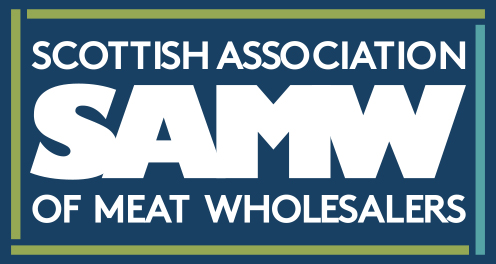SAMW sets fresh goals for 2016
Scotland’s meat wholesalers are looking to 2016 for an improvement in end product prices and an upgrading of the way in which regulatory burdens are applied to the industry by government.
“The past 12 months have been tough on prices and challenging in relation to new regulations, a combination which has added to business pressures for member companies,” said Alan McNaughton, SAMW president.
“Thankfully, product quality from Scotland remains strong, in the main, underpinning the Scotch premium, without which the pressures would have been even more severe in 2015. The healthy, largely assured and beef-bred production of meat from Scottish farms remains central to our industry’s hallmark for quality and must be guarded and protected by us all.
“It is clearly crucial that we continue to pay close attention to quality issues and market demands in 2016, factors which came to the surface twice during 2015 by way of a farming/processing debate over livestock spec’ requirements and discussions surrounding livestock movements.
“In each case, I believe we established good mutual understanding of how and why spec’ and movement demands have an impact on end product values. Frankly, once retailers lay down an agreed set of requirements we either meet them as producers and processors or we give up and do something else.
“Senior SAMW representatives took part in some recent farmers’ meetings to ‘freshen’ the spec’ message although, in truth, spec’ demands haven’t changed that much over the years. Since those meetings, we have seen some improvements but are still frustrated when cattle which could so easily have been better prepared, still arrive to be processed as they are, non-spec’ factors included. We do, however, recognise that our members have a part to play in encouraging Scottish producers in this respect. It is inevitable that price penalties will be more targeted if out-of-spec’ cattle continue to be presented at abattoirs.
“Ultimately, it’s an ‘effort and income’ issue and while some producers are successfully hitting both targets, there are some who aren’t.
“On the movement debate, some grey areas remain, largely concerning what actually constitutes a commercial farmer-to-farmer move, as opposed to a more contained linked-holding transfer. Some retailers have higher demands than others on this, of course. Once again, the crucial point concerns how and when the bottom line is affected. At that stage, no amount of discussion will change a retail buyers’ decision.
“With 2015 having brought the introduction of Food Standards Scotland (FSS), there has been an improvement in some key areas of meat sector management. Not all issues have been easy to address, however, with the need for clear plant level communication remaining a priority issue as we move into 2016. Good plant level communication is crucial for processors and regulators alike as we seek together to secure the best outcome for the whole meat chain, especially consumers.
“FSS was also dealt a very poor hand by government in 2015 as regards the way in which EU legislation concerning the introduction of worker certificates of competence (CoC) should be applied to the UK meat sector. By deciding to blindly follow the EU letter of the law, without sufficient thought to how that might affect the practical workings of our industry, the UK’s implementation of CoCs left a lot to be desired.
“SAMW members were subsequently frustrated by the need for established and experienced plant workers to have to secure the newly introduced certificates, merely to prove they could keep doing their job.
“We have no problem whatsoever with plants, people and processes being properly structured and managed but the CoC issue was very badly handled. As a result, the CoC process grew arms and legs as the year progressed, driven on by some excessively poor advice from training bodies in the south of England, which were clearly not moderated by government. All we’re getting as a result is increased cost, not increased competence.
“As we move into 2016, therefore, it’s very much with the hope that prices will deliver a fair return for all along the supply chain; spec’ delivery will become consistently better and that those who are responsible for implementing UK and EU legislation will take time to look at how good our industry already is, and how it operates, rather than seeking the next ‘gravy train’ to keep themselves in work.”
